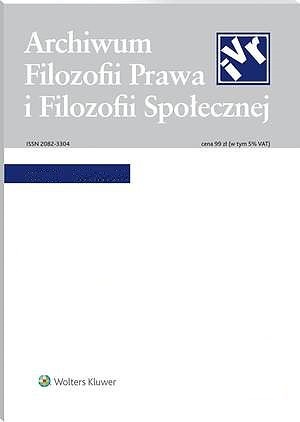Legal Databases and Their Functions in the Process of Interpreting and Applying the Law
Legal Databases and Their Functions in the Process of Interpreting and Applying the Law
Author(s): Tomasz Stawecki, Wiesław StaśkiewiczSubject(s): Law, Constitution, Jurisprudence, Philosophy of Law
Published by: Stowarzyszenie Filozofii Prawa i Filozofii Społecznej – Sekcja Polska IVR
Keywords: legal database; legal interpretation; hybrid interpretation of law; legal positivism; syllogistic model for application of the law
Summary/Abstract: This article deals with the implications of the widespread practice of use of legal databases in Polish judicial practice. Apart from the undeniable positive effects of development of an electronic civilization, the article deals with the negative effects of use of databases. This is because a conflict arises between the possibilities offered by the latest technology in the form of easy access to legal texts, commentaries and thousands of judicial rulings, and the unique historical experience of the judiciary in a former communist country, methods of legal interpretation sustained by legal positivism, and domination by a syllogistic model for application of the law. All results in dysfunction of legal databases. A kind of “hybrid interpretation of law” is formed, which is a combination of a legacy, the effects of transformation of the economy and the system, as well as the new rules of law, on the one hand, and the ideology of bound judicial decision on the other. The nature of the “hybrid interpretation of law” is the infinite scope for citing judicial rulings and commentaries available in the databases without taking a broader theoretical view – without supporting arguments, and so the citing of a ruling has become the basis for adjudication. The question of whether the possibilities that electronic databases offer will cause interpretation of this kind to turn into a new form of legal rhetoric, or whether it will remain merely a means of adaptation of the discretionary power of judges to legal positivism doctrine, and thus the sophism of the period of transformation, remains an open one.
Journal: Archiwum Filozofii Prawa i Filozofii Społecznej
- Issue Year: 4/2012
- Issue No: 1
- Page Range: 84-105
- Page Count: 22
- Language: English

